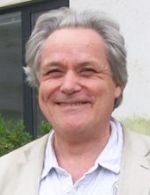Professor Jim Smith
My interests span foundational, methodological and applied Bayesian statistics and decision theory often in high dimensions. My book in 2010 gives my particular take on Bayesian Decision Analysis. I am currently jointly leading a team of researchers to investigate ways groups of experts in very different domains of knowledge can nevertheless ensure the coherence of their judgments.
One increasingly important domain of these technologies is for managing food crises. Colleagues Martine Barons, Manuelle Leonelli and I now have several publications reporting this work and held several decision conferences to inform this challenging inferential problem. We currently run a number of workshops to disseminate this research. I am one of five members of the Food Global Reseach Priority team that has been set up by the university to co-ordinate and resource research into food security. I was part of a team recently funded by the European Food Standands Agency to elicit expert judgments on food.
I have spent many years studying the theory of graphical models including Bayes Nets, especially focusing on developing dynamic and causal variants of these. Over the last few years I have discovered a new graphical tool - more expressive than the discrete Bayes Net - called a Chain Event Graph. Our team has developed a rich suite of methodologies which support this class plus two pieces of software one in R and one in Python together with a monograph that appeared in 2018. Recent collaborators developing various dynamic and decision theoretic extensions include Ann Nicholson, Jane Hutton, Peter Thwaites, Bob Cowell, Lorna Barclay, Christiane Gorgen, Rodrigo Collazo, Aditi Shenvi, Rachel Wilkerson, Xuewen Yu and Peter Strong: see below.
I have recently developed new Bayesian selection methods across various classes of models, most recently applying these to biological regulation models, for example for longitudinal circadian gene expression, dynamic graphical models of fMRI images of the brain, reliability and to longitudinal studies of public health and crime. I have a particular interest in developing causal discovery algorithms over novel classes of dynamic models.
The links between algebraic geometry and various graphical models have also fascinated me for a long while especially their associated semi-algebraic structures and I have recently made some new contributions to this area. I am now investigating the geometry of probability tree models: see my recent publications. I have had a long interest in Bayesian decision making under conflict and have recently developed multiattribute utility models for helping the design of military training real time decision makers in such environments. I continue to study Bayesian models of forensic evidence and have a special current interest in assessing strength of activity level evidence.
I was a Fellow of the Alan Turing Institute in London and from September 2017 until September 2024 and am now a Turing Visiting Collaborator. I have been engaged as PI in 6 different projects there and CI on 7 others,. These applied AI projects have mainly been with National Government and Police developing methodologies to study the efficacy of various carbon zero strategies threats and for policing violent crime and exfiltration threats and helping the planning for prison accommodation provision for the Ministry of Justice.
I act as a consultant for the university for a number of well-known companies. In particular I have a long standing interest in methods for combining expert judgments and elicitation. I participated in a COST joint European award "Expert Judgment Network: Bridging the Gap between Scientific Uncertainty and Evidence based decision making" and with Simon French I led elicitation of uncertainty handling after a nuclear accident for SAGE and COBR.
I headed a successful bid as Co-Director of OxWaSP for an EPSRC funded initiative to train PhD students from Warwick and Oxford to use and develop new methodological and computational statistical techniques to help cope with the massive data sets and models now needing analysis in industry and society. Successfully supervised four PhD students working in this area.
To check out some examples of my current academic work see my more recent publications given below. For your convenience I have subdivided these into my publications in Statistics, Decision Analysis and OR, AI and Machine Learning.
Contact him at J.Q.Smith@warwick.ac.uk

